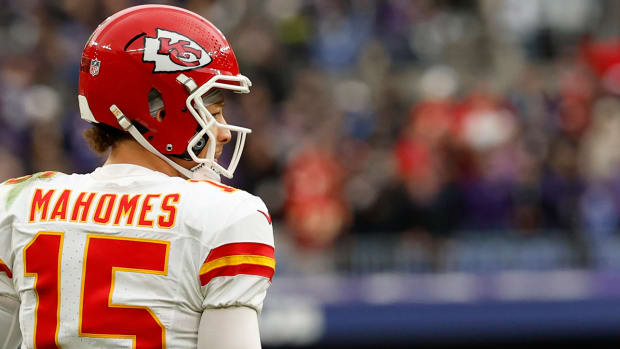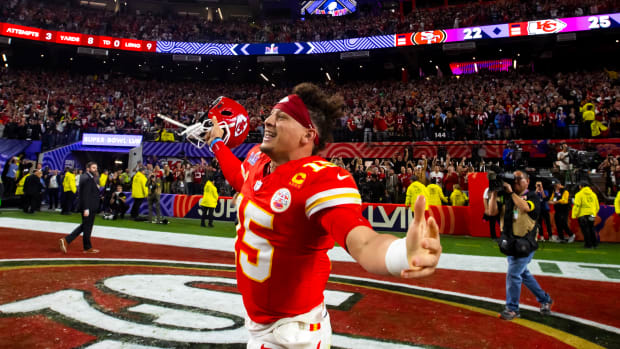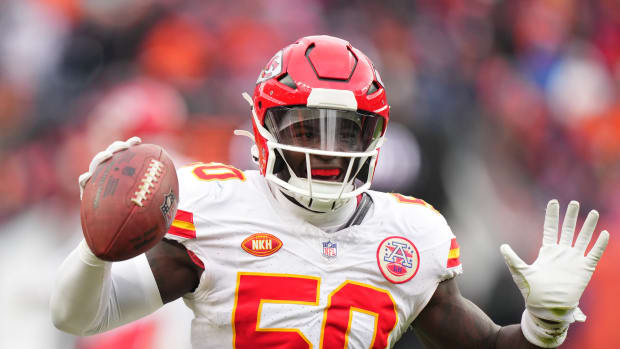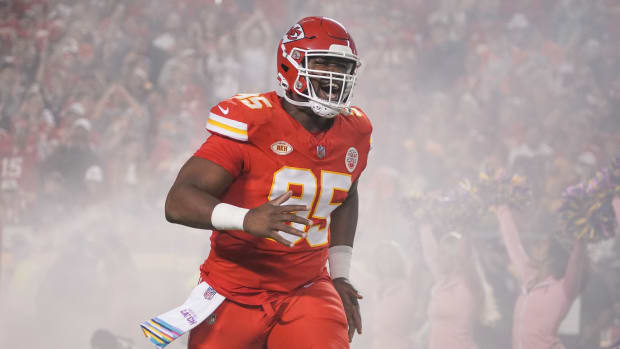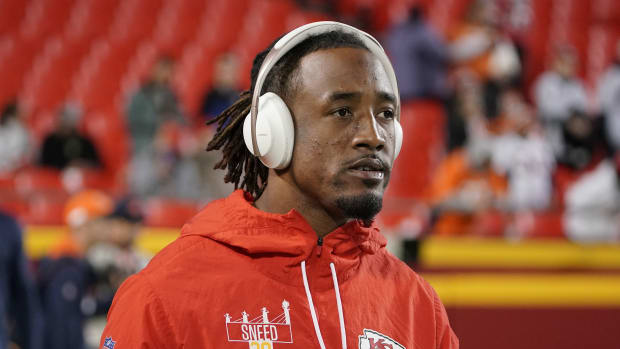Is it possible to predict the success of NFL Draft picks?
After Roger Goodell called the final name in the 2020 NFL Draft class, many football minds immediately began the process of grading each team’s draft. Did the team reach for a player? Did they make a poor trade? Did they over-value a certain position, or ignore an area of need?
I started wondering a different question: How good can we actually expect NFL talent evaluators to be in the draft? If we looked at the big picture, how volatile is the success of a draft pick? Is it a nice, smooth, predictable line from the first overall selection to the last? Or is it choppy and filled with so many misses and hidden gems that it looks more like a heart monitor readout during a Chiefs playoff game than a scientifically-predictable result?
Here’s my attempt at finding out that answer. If you have questions or issues with my methodology, feel free to tweet me and we can discuss it!
I looked at five main categories for each of the top-246 players selected in every draft from 2000 to 2019: Career NFL Games, Years Played As Primary Starter, Pro Bowl Selections, First Team All-Pro Selections, and Career Approximate Value (more info on that metric here). I felt that these values showed big-picture markers of success in the NFL, such as peak performance (First Team All-Pro), sustained excellence (Pro Bowl Selections and Years Played As Primary Starter), and longevity (Career NFL Games and Career Approximate Value). This will be my measurement for quantifying NFL success.
The next step was to sum all 20 years of the draft at each draft slot. The first overall selection in each of the last 20 drafts, for example, had three First-Team All-Pro selections (only three!), 38 Pro Bowl selections, 125 total years served as the primary starter, 1183 total Approximate Career Value, and 2004 NFL games played. These are the combined career numbers for No. 1 overall picks from Courtney Brown through Kyler Murray.
Next, I took the percentile rank of each of those five categories. The first overall pick ranked in the 17th percentile in All-Pro selections, 75th percentile in Pro Bowl selections, 100th percentile in Years Served As Primary Starter, 100th percentile in Approximate Value, and 95th percentile in NFL Games Played, for an average rank of 77%. The All-Pro selections really weigh down the #1 overall pick here, as they would be sitting at 92% without that metric. Are the All-Pro teams too volatile to weigh as 20% of my success score? Maybe, but there are only a handful of those given out each season, and I feel that performing at the very top of the sport should be heavily considered. So I kept it.
Finally, it was just a matter of graphing the scores for each of the 246 draft slots from 2000-2019.
There are certainly some notable peaks and valleys in this data. The 11th pick overall actually scored the highest, with a 91% rating. 18 All-Pro selections, 45 Pro Bowls, 114 years started, and 957 Career AV is pretty impressive. Most of that heavy-lifting was done by defensive stalwarts JJ Watt, DeMarcus Ware, Dwight Freeney, and Patrick Willis. Other notable 11th picks include Jay Cutler, Ben Roethlisberger, Minkah Fitzpatrick, Marshon Lattimore, Taylor Lewan, and Chiefs 2012 selection DT Dontari Poe.
On the underperforming side, there was a sharp drop-off at the 22nd pick, ranking 51st overall with a paltry 36% score. Zero All-Pro selections, six Pro Bowl selections, 69 years started, and 530 Career AV makes for a pretty disappointing 22nd pick. The culprits here include three Browns QBs (Brady Quinn, Johnny Manziel, and Brandon Weeden), Bears chuck-and-pray Super-Bowl-Losing-QB Rex Grossman, and Bills QB bust J.P. Loss-Man. Demaryius Thomas is about the only notable success story in the bunch, although Percy Harvin’s career story may get an epilogue this season.
Everyone should have expected pick values to gradually decrease over time, but the spikes and dips show that the unpredictability is still very real. Even among players picked at the exact same spot, the variability can be staggering. A home run pick in the later rounds sticks out like a sore thumb. Pick 126 had Jared Allen and Elvis Dumervil who were bonafide stars, but the rest of the 126 selections were entirely forgettable. Obviously Tom Brady's draft slot at 199 is the most famous late-round success story of all time, but that didn't help Luke Falk, the only other QB to be picked at 199 in the last 20 drafts.
Overall, I feel this study shows that talent evaluation in football is far from an exact science, and that draft grades are probably less of a qualified judgment on a team’s ability to identify talent and more of a futile exercise by bored fans who are just ready to watch more football. I can’t say I blame them.

